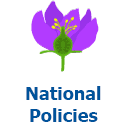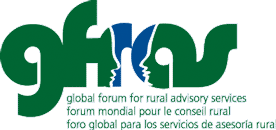 Every country has developed, formulated, and decreed national policies related to rural advisory services. Find some examples here. If you are looking for a national policy from a specific country, please use the search function, selecting the category “National policies” and the tag for the country.
Every country has developed, formulated, and decreed national policies related to rural advisory services. Find some examples here. If you are looking for a national policy from a specific country, please use the search function, selecting the category “National policies” and the tag for the country.
This paper aims at learning lessons from recent extension policymaking practices in Benin, Burkina Faso, and Niger in West Africa. Similar policymaking processes lead to context-based extension policy content. However, extension policy should include (i) strategic partnerships with the private sector, research and education organizations, (ii) self-renewal mechanisms for responding to environmental changes, and (iii) mechanisms for national extension systems to take advantage of global experiences of policymaking, implementation, and evaluation.
Additional Info
- Author(s) Ismail Moumouni
- Year 2014
- Type of Content Case study, experience, example
- Type of Document Research Papers and Studies
The author asks the question, how evidence can best be prepared, packaged and made available to have the highest chance of impact (influencing the policy process).
Additional Info
- Author(s) Paul McNamara
- Year 2014
- Type of Content Conceptual (definitions and frameworks)
- Type of Document Brief
This document summarises the major conclusions of participants of the 5th GFRAS Annual Meeting, held in Spetember 2014, regarding the relevance of an evidence-based RAS policy environment, how RAS policies should look, and how they can be influenced the 5th GFRAS Annual Meeting.
Additional Info
- Author(s) Natalie Ernst
- Year 2015
- Type of Content Manuals and guidelines (how-to)
- Type of Document Meeting report
“How can Rural Advisory Services (RAS) reach millions of smallholder farmers in a poverty oriented, ecological, and financially sustainable way?” This was the starting question of a one-year learning process undertaken by the Swiss Agency for Development and Cooperation’s (SDC’s) Agriculture and Food Security Network. The learning process began in September 2014 with a review of project documents and selected key informant interviews pertaining to long-term SDC-financed rural advisory projects in Vietnam, Laos, Bangladesh, Nepal and Kyrgyzstan. Also considered were RAS systems in China and India, where development partners play a lesser role. The book’s reflections on 20 years of experiences in Asia articulates the lessons learned and provides recommendations on how RAS systems can best reach out to large numbers of agricultural women and men producers in a poverty-oriented, ecological and financially sustainable way.
Additional Info
- Author(s) Stefanie Kaegi and Peter Schmidt
- Year 2016
- Type of Content Case study, experience, example
- Type of Document Research Papers and Studies

